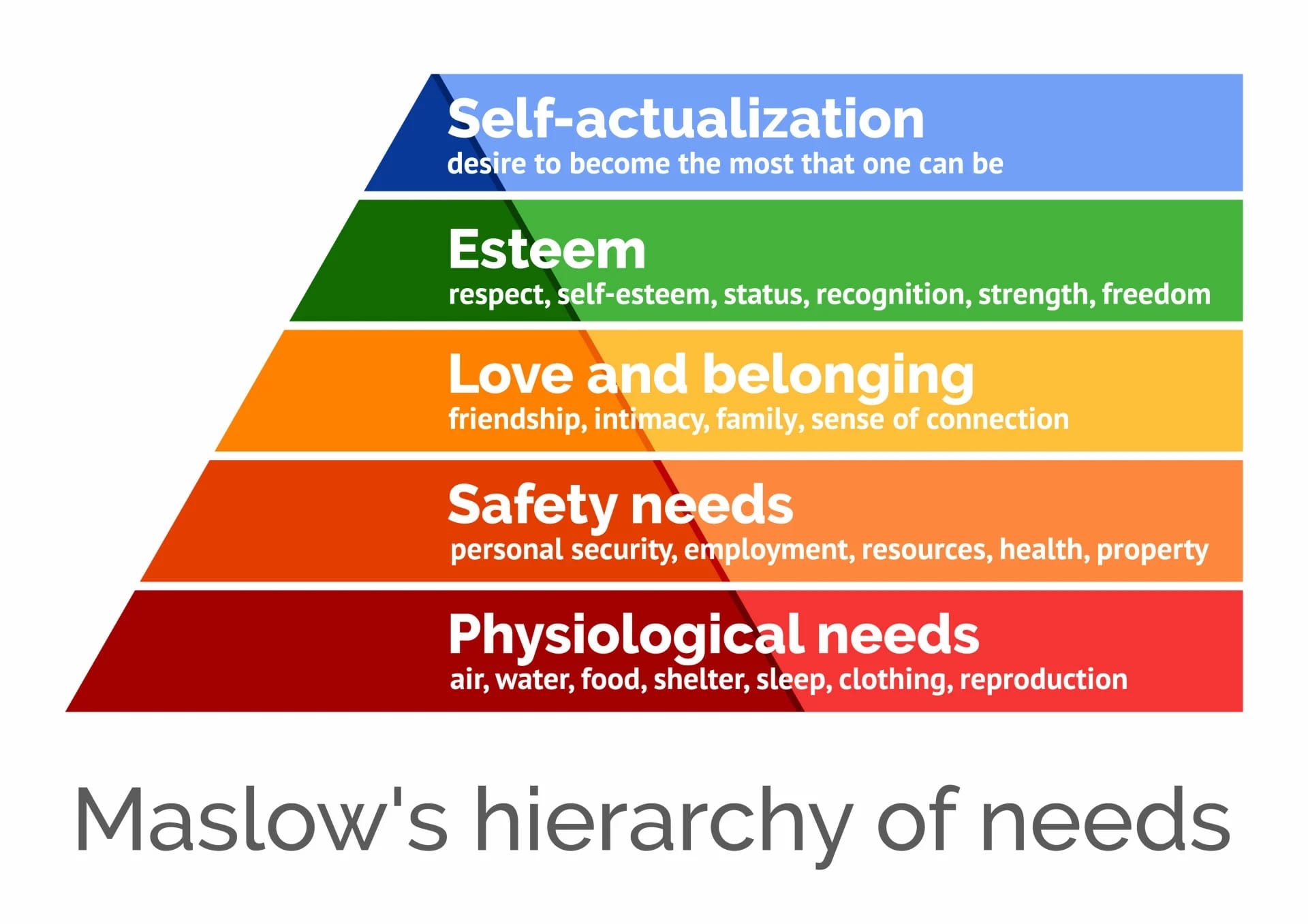Moving Abroad For Work
Pros and cons you might not think to weigh up when considering moving abroad for work…

Pros and cons you might not think to weigh up when considering moving abroad for work…
Professional Nomads
The visual effects industry can often drive artists and crew to become nomadic.
Compared to other professions, the VFX industry is fairly small. And there are city hubs dotted around the world where most of the high-end post-production work passes through. On top of that, some countries' governments offer tax breaks which attract even more VFX work to their specific hubs.
I’m from Bergen, a city in Norway which has a population of just under 300,000 people. It has a very small film and visual effects industry. Even all of Norway as a whole constitutes just a tiny part of the global visual effects market. There is just not much work there for a compositor. – And even less if you want to work on really high-end, international projects.
If I were to venture a guess, I’d say there are fewer than 1,000 people working in the visual effects industry in Norway. (This website says up to ~441 but it probably doesn’t cover all of the studios).
That’s equivalent to just one large company in London.
There are likely an order of magnitude more people working in VFX companies just within central London than in all of Norway. And so finding steady work is typically much easier here, because even if one contract ends, you can get another one with a different company close by.
Working from home has changed this a little bit – you don’t necessarily have to live near central London to work for a London company. But you typically do have to live in the UK due to the tax break rules.
And so staying in a place such as Bergen isn’t really a viable option for many people if they want to work full-time in VFX on the types of projects I've been fortunate to work on, for example.
You might find yourself in a similar situation.
Choose Your Difficulty Level
If you live in a country with a very small or non-existent VFX industry, and it's difficult to find (enough) work, you have some options:
(From easiest to hardest)
- Staying in your home country and trying to get remote VFX work. Obstacles: You have to navigate tax returns for the countries you’re working remotely for, and the projects you're allowed to work on may be limited due to tax break laws. Time zone differences may be challenging.
- Expanding your scope, and searching for work in related industries within your city/country. (Such as advertising, games, VR, architectural/medical visualisation, etc.). Obstacles: A certain amount of retraining may be necessary, and you may not be able to work on exactly the type of projects you would most like to do.
- Moving abroad and joining one of the VFX hubs. Obstacles: Leaving friends and family behind. Starting from scratch: finding a place to live, building a network, setting up all the admin (such as a bank account, doctor, dentist, etc.). And depending on where you're from, you may need a Visa.
- Starting your own VFX company. Obstacles: A large, long-term, and potentially risky undertaking which is unlikely to turn a profit the first year(s). Building a network of clients and getting steady work coming in. Hiring and managing a team, and having other high-level company responsibilities.
They're all valid options, as may others be, and only you can know which is the best option for you.
This article is about my thoughts on and experience with point number 3: moving abroad for work.
Finding Your Way In
I have lived in the UK for 14 years now, and have been working in the VFX industry for 12 of those.
The first two years I went to Teesside University in the north of England. My university in Bergen had a 2+1 program where you could do two years in Bergen, and then the last year abroad at select partner universities. I chose to go to England for my final year, and ended up staying on for another year after to get a Master’s degree.
When I graduated, I moved down south to London and started working in VFX as a freelancer. That was my way in, and it was a quite natural – and fairly straightforward – one. (I didn’t need a Visa due to Norway being a part of the EEA).
Going to university in another country is a great way of getting to know the people and culture, making connections, and experiencing what life is like there.
It’s not a bad option if you have the opportunity (and reasonable funding – some countries’ student loans seem predatory, frankly).
You might also have friends or family that you could stay with in your target country, or who could otherwise help you financially, which is another way to ease your move.
Or you might need to apply for a Work Visa, which can be a bureaucratic hassle. It will typically be costly, not permanent, and you'll likely need to be sponsored by a company. But it is definitely a valid option – and a way in for those with the tenacity.
Regardless of which routes are available for you to take, there are two important things you should remember to consider before you decide where to go:
Cost of living and Quality of life.
Cost Of Living
When deciding which country and city might be right for you, you should take the cost of living into consideration.
Companies in certain cities will offer a higher salary than others, but it may also be more expensive to live in those cities. And so the higher salary is often cancelled out or even outweighed by the increased cost of living.
Take London, for example. If you have (or plan to have) children, you should know that nurseries are very expensive in London. But they are free in for instance Germany and other European countries. Rent is also more expensive here than in other parts of Europe, going out is more expensive, train travel is more expensive, and so on.
You can compare the cost of living between the cities you are considering moving to, and your own city, on for example Numbeo:
Obviously, take the numbers with a grain of salt. But this way, you can get an idea of the purchasing power of your expected salary.
It will also help give you a better idea of what type of salary you can ask for. Because you shouldn't just directly convert your current salary into your target country's currency and expect to be offered that as your new salary. You have to consider the cost of living and the typical salaries there (using references such as Numbeo and Glassdoor).
And you also have to take into account what your quality of life is likely to be in the new city.
Quality Of Life
Your work will have a large impact on how much you enjoy life.
But so will other things, such as:
- Climate
- Culture & events
- Proximity to family
- Food
- Standard of living
- Crime/safety
- Healthcare
- Pollution
- Politics
- Traffic/commute
- Ability to walk/cycle to get around
- Access to nature
- Working hours
- Holidays
There are also more intangible qualities to consider, such as whether or not you personally like it there, and if you vibe with the people and lifestyle, for example.
If you get to work in VFX, it’s fair to assume that you’re pretty high up on Maslow’s pyramid:

Maslow’s hierarchy of needs.
Just make sure that you’re not sacrificing too many things that are truly important to you in your pursuit of a better job. While salary is very important, remember to also weigh up the other things listed above to get a fuller picture of the quality of life that’s on offer.
There are quite a few ways to quantify and compare quality of life.
Going with Numbeo again, for instance, you can compare the quality of life between the cities you are considering moving to, and your own city:
Looking at all these numbers can be very useful but they are no substitute for experiencing the real thing.
And from my own experience, there are a few things you should know about life abroad.
Living Abroad
Life abroad can be great in many ways, but the grass is not always greener on the other side.
At times, you will probably question your decision to move. It’s the eternal struggle between exploration and yearning for home. For me, it's wanting to see how far I can advance my career and to build a (new) family life, versus missing the friends and family (and the mountains) at home.
Because even after 14 years in the UK, Bergen is still home. In the summer and for Christmas, I still go back home to Bergen. And perhaps for as long as I live here, I'll still feel like I'm a Norwegian in London.
Who knows. London is rubbing off on me. I both think and speak more in English than in Norwegian now, because I'm completely immersed in the English language every day, at home and at work. So I'm not the same Norwegian I was before I moved here.
But it's not like home is the same as what it was when I left 14 years ago, either. It has moved on, just as I have. Life continues. And it's easy to look back with rose-tinted glasses and become nostalgic about the past – especially for a time with much less responsibility. But that's not a fair comparison to the present.
It's also funny how it's abroad where you learn the most about what it’s like at home. How it’s different, and how it’s the same. You get a new perspective on it all, and your views might change.
Just be wary of out of sight, out of mind. It's real. You will have to make an effort to keep in touch with friends and family back home. Otherwise, communication slowly fades. If they're not front and centre in your mind, they won't be front and centre in your life.
The same goes for your native language. Especially over longer periods. You need to practise it or you'll start to get rusty. You'll forget words and your intonation changes unless you speak your native language regularly. It helps to make friends with people that are from your country, wherever you move to.
Distance can make daily life more challenging in other ways, too. We have no family members here in the UK, and so raising a child is a lot more demanding. We don't have the benefit of grandparents or uncles and aunts helping out on the weekends here and there, for example.
You make it work, of course, but these are things that you should consider, and that could influence your decision about if you'll move and where you’ll move to.
And lastly, keep in mind that short term can quickly become long term. That's not necessarily a bad thing but it's something to be aware of. I didn’t plan on staying 14 years in London but I'm still here after all this time, because London has treated me pretty well.
By moving to London and working for the VFX companies here, I’ve achieved more than what I could have hoped for when I first started studying back in Bergen. The teams I've worked together with have both won and been nominated for multiple Oscars, Emmys, BAFTAs, and VES awards.
So far just this year, we have received a double Oscar nomination for Best Visual Effects, a double BAFTA nomination for Special Visual Effects, and a VES nomination for Outstanding Supporting Visual Effects In A Photoreal Feature, on Mission: Impossible - Dead Reckoning Part One and Napoleon, for example.
(However, although fun to look back on, the excitement of receiving even prestigious accolades is short-lived, and shouldn't be seen as an important factor in your decision-making).
Much more importantly, I met my partner here in London, we started a life together, had a child, bought a flat, and are continuing our adventure together with London as our base. That's what it's really about, to me.
Whether you decide to move abroad for work or not: The grass will ultimately become the greenest where you water it.
– I hope you found this article useful. For more reflections, see Advice.



